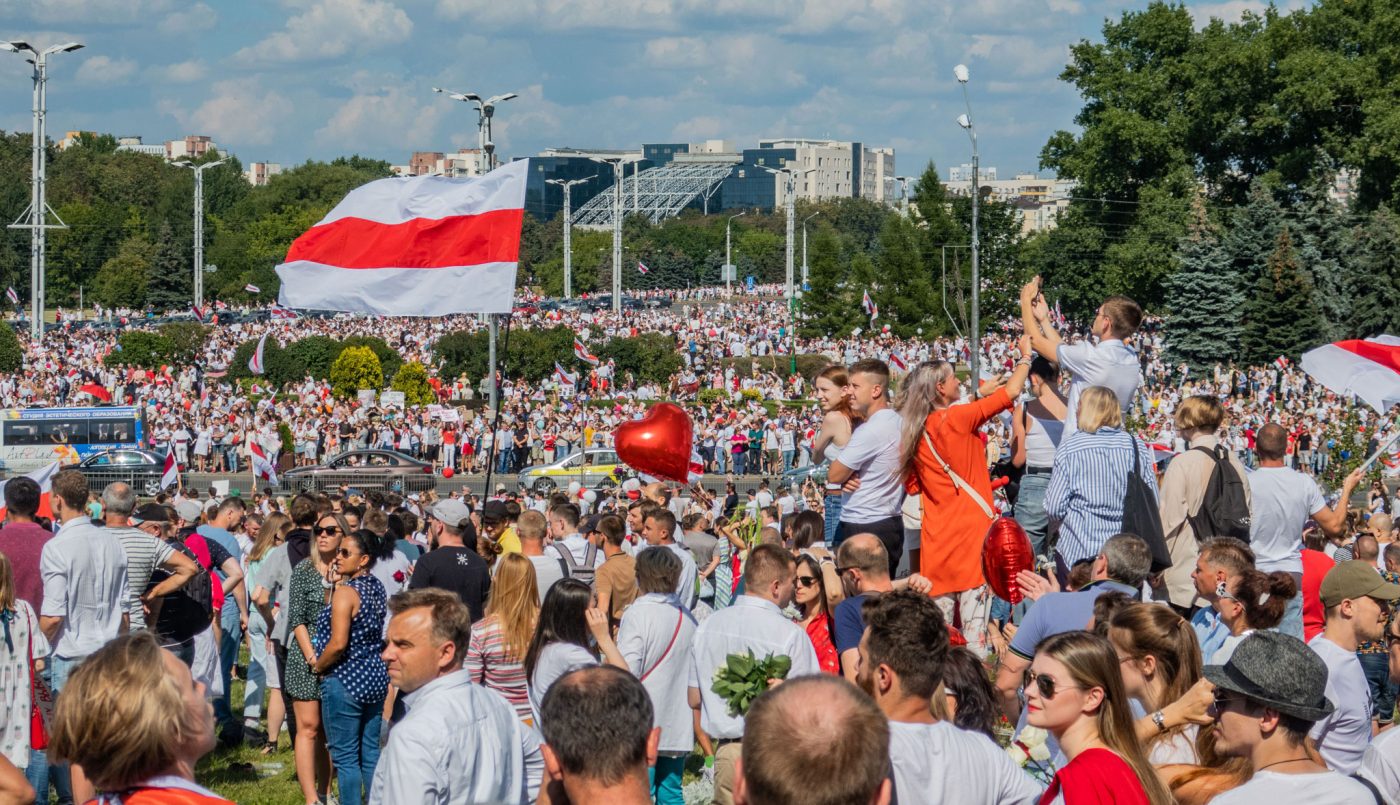Lithuanians understand freedom. That is why public figures and activists in the largest of the Baltic states are offering unstinting political and humanitarian support for Belarus’s pro-democracy uprising. The long-serving foreign minister, Linas Linkevičius, has been in the forefront of diplomatic efforts to build an international coalition against the election-rigging regime of Alyaksandr Lukashenka, and in support of the democratic opposition. The Lithuanian president, Gitanas Nausėda, has shown that given the right instincts and advisers, a lack of foreign-policy experience before taking office is no handicap to principled effectiveness. A Lithuanian journalist, Andrius Tapinas, plans to recreate the Baltic Way demonstration of August 23rd, 1989, in which two million people linked hands on the 400-mile trans-Baltic highway, in protest at the Soviet occupation. This time, the route will run from Vilnius to the Belarus border.
The determination and imagination shown by the Lithuanians are commendable. So are efforts elsewhere. Officials in Estonia and Latvia have spoken up. Poland’s prime minister Mateusz Morawiecki has called for an emergency European Union summit to sanction the perpetrators of human rights abuses in Belarus (though sanctions will get nowhere because of a Hungarian veto). Poland has also put $13m into supporting independent media and scholarships and is relaxing labour market rules for Belarusians. The Czech prime minister, Andrej Babiš, has echoed calls for a re-run of the rigged presidential elections. His foreign minister, Tomáš Petříček, complained after Lukashenka blamed Czech provocateurs, among others, for supposedly instigating the protests. Canada has, as usual, been commendably forthright.
But this highlights the policy (and action) vacuum elsewhere. A handful of mostly small countries have done more than all the big Western countries combined. Germany, France, Britain, and even the United States have issued statements deploring violence, but they have not matched their words with deeds. The European Union has been particularly limp. Ukraine’s stance has been deplorable.
A sophisticated argument for this hands-off approach is that outside support would do the protesters a disservice. The Lukashenka regime (and its paymasters in Moscow) would be delighted to say that the pro-democracy protests are really just a “color revolution” financed by George Soros and organized by Western intelligence services. It did not help the Maidan uprising in Ukraine, the argument goes, to have the explicit support of senior U.S. and EU officials. It merely stoked mistrust among Ukrainians who did not share the strongly pro-Western orientation of the protest’s leaders.
But too much outside support of the wrong kind is a nice problem to have. Far worse is to feel abandoned — or to be killed, maimed, or traumatized by a regime that feels it can abuse its people with impunity. The West had plenty of effective levers to pull. The Lukashenka circle that misrules Belarus launder their money through Western financial centers, and enjoy Western fleshpots for their recreation (Austria is a notable culprit here). Freezing and seizing their assets in the West, and banning their travel, would have not been a sign of Western overreach. It would end an era of deplorable under-reach. It is too late to undo the harm of past passivity. But it is not too late to act now.
More broadly, those urging for timidity in the West reflect a crippling lack of self-confidence in the strengths and virtues of our own system. If we believe in democracy, justice and freedom, we should support other people who are risking their lives for it — following the fine and fearless example set by Lithuania. Worries about provoking the crumbling crony-capitalist regime in Moscow should come way down our agenda. Or not feature on it at all.
Europe’s Edge is CEPA’s online journal covering critical topics on the foreign policy docket across Europe and North America. All opinions are those of the author and do not necessarily represent the position or views of the institutions they represent or the Center for European Policy Analysis.





